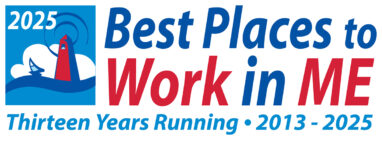Section 199a of The Tax Cuts & Jobs Act of 2017 (TCJA) established the Qualified Business Income Deduction (QBID or 199a deduction), a 20% deduction for qualified business income (QBI). Because Section 199a applies to QBI from pass-through entities, it’s an opportunity most dealership owners can’t afford to overlook. Pass-through entities include S corporations, partnerships, limited liability companies, and sole proprietorships, and aggregating your activities across dealerships structured this way may increase your 199a deduction.
QBI, unadjusted basis, and wage share for partners/shareholders are determined for the tax year for each separate business.
For a dealership, QBI includes ordinary income; however, it does not include capital gains or losses; dividends and interest; annuity payments; foreign currency gains or losses; reasonable compensation paid to the owner; or guaranteed payments made to a partner for services rendered. The unadjusted basis is calculated based on the cost immediately after acquiring qualified (generally tangible and depreciable) property used in the dealership without adjustment for depreciation, Section 179, or bonus depreciation. Partner or shareholder W-2 wages are calculated as your allocable share of the W-2 wages paid by the dealership.
There are limitations on taxable income that affect the amount eligible for the 199a deduction.
Your 199a deduction may be limited to the lesser of 20% of taxable income OR the greater of either 50% of your W-2 dealership wages or 25% of your dealership wages plus 2.5% of the unadjusted cost basis of tangible, depreciable property used in the dealership. The deduction may not exceed taxable income for the year, nor may it exceed net capital gain plus aggregate qualified cooperative dividends. The calculations are complex, to say the least, so the deduction can vary significantly, even for dealerships with similar incomes.
If your taxable income is less than $157,500 ($315,000 if married, filing jointly), you are not subject to W-2 limitations, and income from a specified service trade or business (SSTB) is not excluded from QBI. In general, an SSTB is “any trade or business where the principal asset of such trade or business is the reputation or skill of one or more of the owners or employees.”
If your taxable income exceeds $157,500 ($315,000 if married, filing jointly), W-2 wage limitations are phased in. These limitations phase in completely once your taxable income reaches $207,500 ($415,000 if married, filing jointly).
Aggregating activities may help you maximize your 199a deduction.
Let’s assume you (or your trust or estate) receive income from two or more dealerships, a related finance company, a related realty company, and over-remits related to a reinsurance company. In this case, aggregating activities may help increase your 199a deduction. To qualify for aggregation, you must report income across entities in the same tax year, and you must own 50% or more of the outstanding or issued stocks for a dealership structured as an S corporation or 50% of capital and profit for a dealership structured as a partnership. Because attribution rules apply, you may include stock or capital owned by your children, parents, or spouse in your calculations for your percentage of ownership. In general, eligible businesses must also satisfy two of the three following requirements:
- The entities share significant centralized resources, such as accounting, bookkeeping, and information systems.
- The entities rely on each other to operate.
- The products or services are the same or offered together.
Since your dealerships and related companies likely already meet the first or third requirement, you may have a “leg up” in meeting these requirements.
The Biden Administration has proposed phasing out the 199a deduction for taxpayers with income over $400,000, so there’s no time like the present to work with a CPA to determine whether aggregation would increase your deduction.
The professionals at ARB are here to help.
ARB’s Auto Dealership Services Group is dedicated to helping auto dealerships and their owners thrive. My team can help with the extensive testing and analysis needed to assess whether aggregating dealership activities will be beneficial in your situation. Contact me today to talk strategy.
by Bart Haag, CPA
Barton Haag joined ARB in 1996 and has been a principal with the firm since 2005. As the Practice Leader for ARB’s Auto Dealership Team, Bart provides financial accounting, income tax planning, and business advisory services for clients in the automotive and motorcycle dealership industries. He also works with closely-held businesses, many of which are family-owned.





